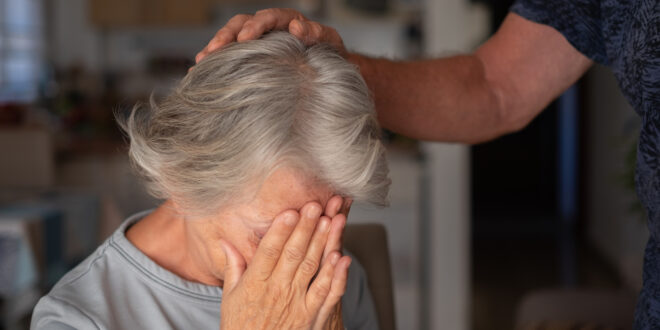Elder abuse is in the news again – and this time it’s accompanied by the truly alarming estimate a staggering one in ten older people (those over the age of 65) are being subjected to this abhorrent behaviour. ‘One in ten’ should ring warning bells in all of us because it means we’re very likely to know, or encounter, a victim, even if we aren’t aware they are being abused. Or, without wanting to admit it, we are a victim, ourselves.
Elder abuse isn’t new – it’s been occurring throughout history, and throughout cultures, since time began. As with other abuse in families, it is often carefully concealed by the perpetrator, and also by the victim. Despite the social stigma attached to it, in the 1970s, elder abuse was eventually called out for what it was, and given its current label, with open discussions about it taking place.
Since then, elder abuse (which can involve a single or repeated act) has been categorised into several different forms: ‘psychological,’ ‘financial,’ ‘physical,’ ‘sexual,’ and ‘institutional,’ and also ‘neglect’ (either deliberate or unintentional). Whenever and wherever it occurs, elder abuse places an older person in a dangerous situation, knocking their confidence for six, and robbing them of their safety and the independence they still retain. Worst of all, elder abuse denies an older person the love and support of those they thought they could trust. So, if the situation is so serious, why is it so often unreported?
One of the main reasons is shame. Almost everyone reading this article will, at some stage in their lives, have been in the position of wanting to ‘keep mum’ about poor family behaviour. Whether it’s an adult child who’s been caught driving ‘over the limit,’ or a grandchild who’s been cautioned for school bullying; we just don’t want our friends and extended family to know about it because it doesn’t reflect our own values. This shame is multiplied many times over when the bad behaviour of a family member is directed at ourselves.
Compounding the problem is a vulnerable older person may depend, for essential support (even a roof over their head), on the very family member who is abusing them. There is also the difficulty of knowing who to report the abuse to, and how to go about it (not every older person has access to a mobile phone or the internet, and they may not be physically capable of leaving the abusive situation to seek help). What’s more, if cognitive issues come into play, the victim may not be able to communicate the abuse.
Psychological issues also contribute to the underreporting of elder abuse. As a victim’s confidence is sapped, they can quickly turn to blaming themselves for the abuse inflicted on them, imagining they somehow ‘deserve’ it or to object is to ‘create a fuss’ or appear ‘ungrateful,’ considering the ‘burden’ they are putting on others.
Because there are so many obstacles that lie in the way of reporting elder abuse, we’ll be bringing you a series of articles designed to help you spot the signs of it in others (and also yourself). We’ll also look at how you can talk to those you are concerned for, and what you can do to help them or seek help for yourself. In the meantime, if you are worried about yourself, or a friend or family member who you suspect may be a victim of elder abuse, don’t hesitate to contact the Elder Abuse Response Service. If you feel more comfortable, talk to a trusted professional, such as your GP, about your suspicions. If the situation needs immediate action, call the police.
Together, we can help recognise and combat elder abuse in our society.








Join the Discussion
Type out your comment here:
You must be logged in to post a comment.